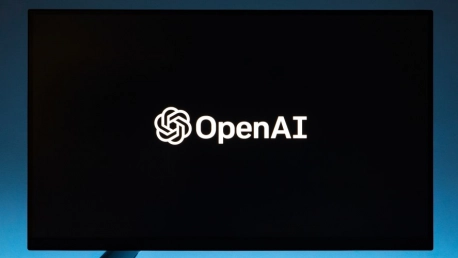According to a recent forecast by the National Retail Federation, retail sales in 2023 will increase by between 4% and 6%. To stay competitive amid these unprecedented levels of growth, brands must continue to deliver personalized customer experiences through the use of innovative technologies.
One such technology is ChatGPT, an advanced language model developed by OpenAI, which has gained significant traction in becoming one of the most disruptive creations in recent history.
McKinsey estimates that the impact of generative AI, the foundational technology upon which ChatGPT is based, will amount to approximately $310 billion in value for the retail industry due to more powerful marketing and consumer engagement initiatives.
Today, ChatGPT’s potential to fast-track nearly every business process imaginable has the world of work on edge—so how can retailers make full use of its deep learning capabilities? This article explores 5 use cases for ChatGPT in the retail industry.
Virtual Personal Shopping Assistant
Delivering a truly immersive shopping experience is a top priority for many of today’s brands. With generative AI integrated into a business’s e-commerce platform or mobile app, customers can discover specific products seamlessly, get recommendations based on their wish lists and past purchases, and even ask for tailored buying advice based on their particular needs.
Ultimately, ChatGPT will significantly reduce the time potential buyers spend searching for, considering, and comparing products. The advantage for retailers? Lower bounce rates, more conversions, increased average basket size, and a consumer that will return in no time.
However, this platform, despite its highly-advanced features, is still in its infancy. When being used for conversational customer service, one potential issue is that the language it generates may be robotic or unnatural, impacting the quality of customer engagement and satisfaction.
Cross-selling and Upselling
Most retailers make use of analytics to monitor and enhance their customer experience. But ChatGPT can deliver more intelligent shopping suggestions by deriving deep insights from the consumer’s search history across all online stores and other brands.
By analyzing the buyer’s online behavior, ChatGPT easily and quickly predicts the next logical step in their purchasing journey—to suggest relevant products, cross-sell or upsell items, and offer discounts or promotions.
That being said, implementing ChatGPT to collect, analyze, and store data regarding customers’ online activity does not come without potential challenges.
The privacy-first environment that modern businesses must navigate calls for them to take full responsibility for consumers’ sensitive data. And as cybercriminals grow smarter and more sophisticated, this will not be an easy undertaking.
Market Research
Traditionally, market research in the retail industry is a standalone process conducted in numerous stages—from planning and analysis to implementing findings from the research. However, ChatGPT offers natural language processing capabilities that can simplify large-scale analysis and generate quicker, more accurate insights.
Retailers can better understand their target audience by using ChatGPT to identify popular products, single out effective marketing channels, and explore trends that drive customer loyalty. The AI model can go further by collecting and consolidating customer feedback through surveys, offering a deeper knowledge of the consumer landscape and pain points that must be addressed.
Retail leaders will be able to use these insights to inform future product offerings, marketing strategies, and promotional campaigns. A comprehensive overview of the market also enables e-commerce companies to build their own, unique brand identity—and set themselves apart from the competition.
While ChatGPT can simplify market research and provide quicker insights, its accuracy and reliability are contingent on the quality and relevance of the data input. Retailers need to ensure that the model is fed accurate and representative data to derive meaningful insights.
Fraud Detection
As online e-commerce grows, so does the threat of fraudulent activity. Many retailers are aware of the significant damage that scams cause for both their business and their consumers, but cybersecurity tools are often costly, complex, and require a certain level of expertise to operate.
ChatGPT’s ability to understand and generate human-like responses can be leveraged to simulate and analyze potential fraud scenarios. By inputting hypothetical fraud-related conversations or scenarios into the model, it will provide insights into the context and language used by fraudsters, aiding in the development of more robust fraud detection algorithms and strategies.
In addition, ChatGPT can enhance an e-commerce retailer’s customer authentication process, ensuring that the person interacting with the system is the genuine account holder. It can verify the user’s identity by asking personalized questions or engaging in context-based conversations.
This authentication step adds an extra layer of security for retailers’ online stores, reducing the risk of fraudulent access to customer accounts.
Product Descriptions and Images
Search engine optimization (SEO) plays a crucial role in driving organic traffic to e-commerce websites. By analyzing popular keywords, search trends, and incorporating relevant terms into the descriptions, ChatGPT can help retailers create SEO-friendly content that improves the visibility of their products in online searches, attracting more potential customers.
Retailers often have vast image libraries, and selecting the most suitable images for their products is a time-consuming task. ChatGPT can analyze product details, customer preferences, and other factors to provide recommendations on the most appropriate images to use.
With an in-depth understanding of context and requirements, business owners gain valuable assistance in curating visually appealing and relevant images that align with the retailer’s brand and engage customers effectively.
AI-Powered Retail Operations
In conclusion, ChatGPT offers significant potential for the retail industry, providing innovative solutions to enhance customer experiences, drive sales, and improve operational efficiency.
Retailers can benefit from conversational AI-powered customer interactions, cross-selling and upselling opportunities, market research insights, effective fraud prevention, and assistance with product descriptions and images.
However, the potential drawbacks are important to factor in. ChatGPT’s conversational ability may still come across as too robotic, and ensuring data privacy and security is crucial. The accuracy and reliability of insights depend on the quality of input data, and an overreliance on technology may fail to cater to many consumers’ desire for human interaction.
Retailers must carefully navigate these challenges and strike a balance between AI and human involvement. By doing so, they can unlock the full potential of ChatGPT and position themselves for success in the rapidly evolving retail landscape.









